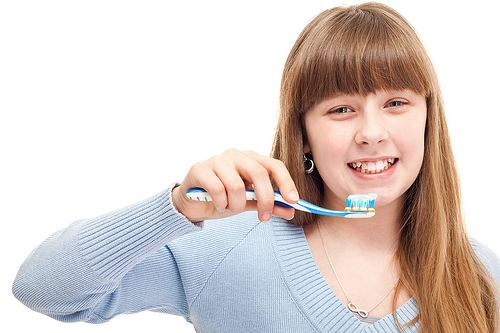Alleviate Tooth Sensitivity
August 9th, 2023

If a sip of ice water, spoonful of ice cream, or piping hot latte is enough to send shivers up your spine from tooth sensitivity, be assured you are not alone. It’s estimated that as many as one in eight adults suffers from tooth sensitivity.
What causes sensitive teeth?
Some of the causes of tooth sensitivity include brushing too hard, a cracked tooth, receding gums, periodontal disease, tooth bleaching, or other conditions that expose the sensitive roots of your teeth. For example, brushing too aggressively can injure your gums, and lead to exposed roots and tooth sensitivity.
When the enamel on the outside of the tooth or tissue located between the teeth breaks down or wears away, nerves inside the tooth trigger sensitive teeth that are particularly noticeable when you drink or eat anything hot or cold.
How to alleviate tooth sensitivity
Fortunately, there are a number of things you can do, both at home and at the dental office, to reduce the discomfort of sensitive teeth. Brushing with desensitizing toothpaste is one of the ways to reduce tooth sensitivity: it works well for many patients, and is typically the first course of action.
- Brush with toothpaste specifically designed for sensitive teeth.
- Change the way you brush by using a soft toothbrush and not brushing too aggressively.
- Avoid brushing teeth after consuming acidic foods and beverages, like orange juice and pickles.
- Drink water or milk after eating or drinking acidic foods or beverages.
- Sip through a straw when you drink acidic beverages.
- Wear a mouthguard at night to prevent teeth grinding that wears down teeth.
- Ask Dr. Cynthia Stephenson about fluoride dental treatments or plastic resin.
For moderate-to-serious cases of tooth sensitivity, more invasive professional dental treatments are available. These include a bonding agent designed to seal/cover the exposed root, obtaining new gum tissue through graft (for receding gums), fillings, crowns, inlays, or bonding. When tooth sensitivity is persistent and results in hypersensitivity, endodontic treatment in the form of root canal may be recommended.
To learn more about tooth sensitivity, or to schedule an appointment with Dr. Cynthia Stephenson, please give us a call at our convenient Walnut Creek, California office!





